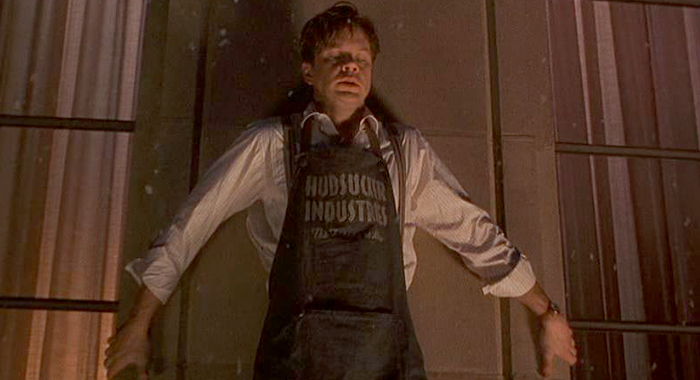
Put the Coen brothers together with Sam Raimi and a top-shelf cast that included Paul Newman, Tim Robbins, and Jennifer Jason Leigh, and what do you have? Well, a huge box office flop and sort of a critical misfire, actually — but beyond all that, The Hudsucker Proxy is one of the more unusual comedies to make its way into theaters during the 1990s, boasting a screwball plot about a corporate mailroom worker (Robbins) who’s used as a patsy by a duplicitous board member (Newman) in a convoluted scheme that eventually leads to the invention of the hula hoop. Oh, and did we mention that the film’s climax takes place on a skyscraper ledge on New Year’s Eve? It’s easy to see why folks didn’t know what to make of Hudsucker when it was released, but over time, more than a few have come to agree with Chris Hicks of the Deseret News, who wrote, “This wild-eyed, sentimental, old-fashioned comedy is definitely parked in Frank Capra-Preston Sturges-Howard Hawks territory, but it is also imbued throughout with the Coens’ own brand of genre-tweaking and sly, winking humor.”
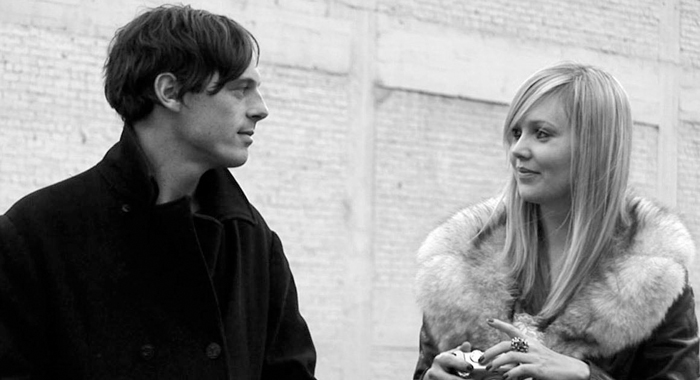
This list includes plenty of famous films and iconic scenes, but if you’re looking to add something a little more unfamiliar to your New Year’s Eve viewing schedule, you could hardly do better than 2008’s In Search of a Midnight Kiss. Written and directed by Alex Holdridge, this award-winning indie follows the tale of Wilson (Scoot McNairy), a disaffected 29-year-old whose barren love life and dire financial straits leave him feeling less than festive as the new year approaches. But thanks to the prodding of a friend, Wilson posts a last-ditch Craigslist ad — and, this being the movies and all, the ad leads him to Vivian (Sara Simmonds). It’s a familiar tale, but one that can push all the right buttons when it’s told properly, and Holdridge pulls it off here. “It’s a great feeling, isn’t it,” asked Matt Brunson of Creative Loafing, “falling in love with a movie about falling in love?”
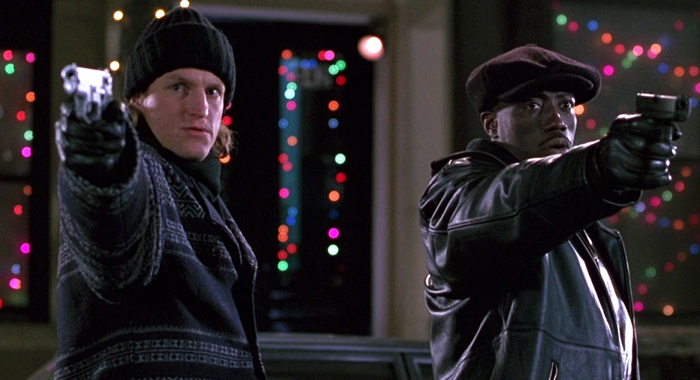
Wesley Snipes and Woody Harrelson were so good together in White Men Can’t Jump that plenty of people wanted a reunion — but most of them had to have been hoping for something better than Money Train, a rote buddy thriller about a pair of squabbling foster brothers who, for reasons too complex and/or silly to get into here, use their background as transit cops to plan a New Year’s Eve heist on the New York City subway system (while vying for the affections of Jennifer Lopez). Though it didn’t come close to Jump’s $90 million gross, Snipes and Harrelson’s second act did earn the praise of critics like Kenneth Turan of the Los Angeles Times, who argued, “Money Train is a by-the-numbers action-buddy picture, and few directors run through those numbers as smoothly as Joseph Ruben.”
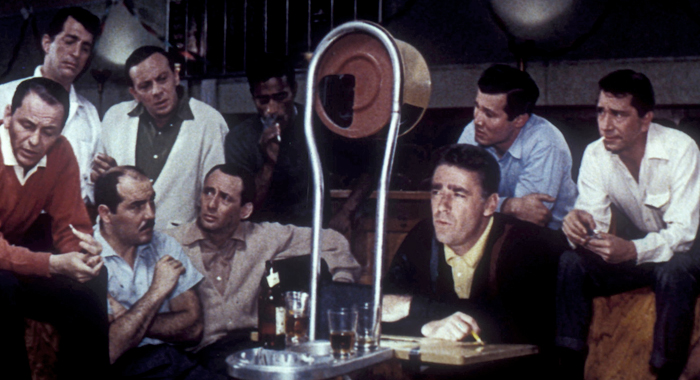
Steven Soderbergh’s 2001 remake of this Rat Pack caper comedy might be slicker (not to mention generally better, as far as most people are concerned), but the original has a campy charm all its own — not to mention a heist that takes place on New Year’s Eve. While everyone on the Vegas Strip is singing “Auld Lang Syne,” Frank Sinatra and his gang knock out the electricity and abscond with five casinos worth of loot. Wrote Empire Magazine’s appreciative Colin Kennedy“From smokes to suits, you get a real flavour of Las Vegas while it was still cool — all of it beautifully shot by the veteran cinematographer William Daniels.”
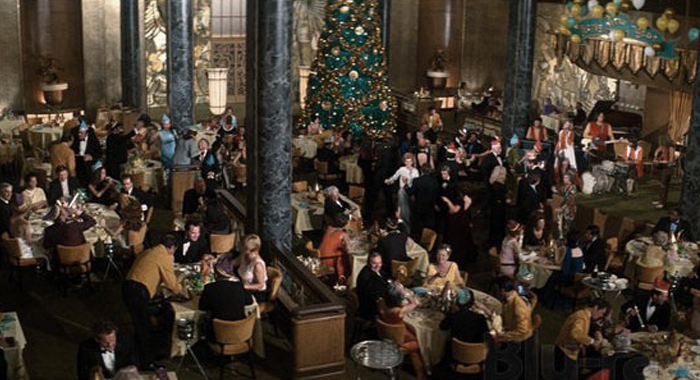
Most of us have high hopes for the year to come when the clock strikes midnight on December 31 — hopes that are eventually dashed to some degree, but rarely with the speed and blockbuster vigor shown in 1972’s The Poseideon Adventure. Adapted from the Paul Gallico novel, this Irwin Allen production kicks off with a New Year’s Eve celebration on an aging luxury liner. The ship is bound for the scrapyard, but never makes it, on account of a tsunami that capsizes the darn thing mere moments after its well-dressed passengers have finished singing “Auld Lang Syne.” The poster billed it as “HELL, UPSIDE DOWN,” but critics were a little more generous — Betty Jo Tucker of ReelTalk Movie Reviews, for instance, called it “one of the best disaster movies of all time!”
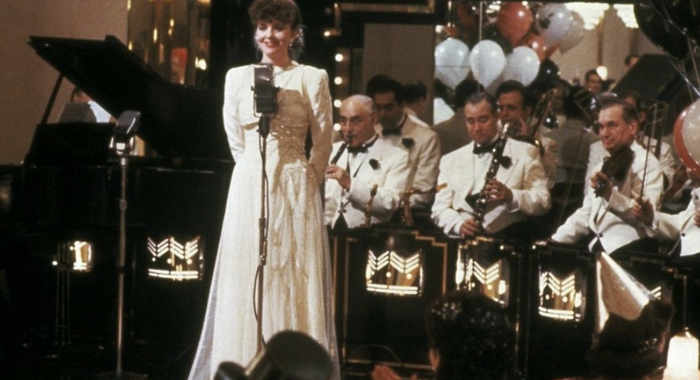
Unlike most of the movies on this list, Woody Allen’s Radio Days doesn’t hinge its plot on New Year’s Eve. But like the holiday itself, it’s mostly about memories, many of them bittersweet — underscored by the film’s final scene, in which Allen uses the holiday to frame the inexorable march of time, telling the audience, “I never forgot that New Year’s Eve when Aunt Bea awakened me to watch 1944 come in. And I’ve never forgotten any of those people or any of the voices we used to hear on the radio. Although the truth is with the passing of each New Year’s Eve those voices do seem to grow dimmer and dimmer.” Allen’s words resonated with Roger Ebert, who wrote, “Like music, the movie builds toward a climax we can’t even guess is coming, and then Allen finds the perfect images for the last few minutes for a bittersweet evocation of goodbye to all that.”
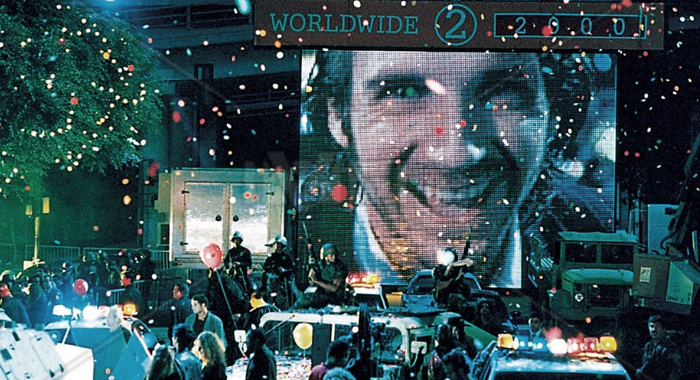
Before director Kathryn Bigelow won an Oscar for The Hurt Locker, she ventured into cyberpunk sci-fi with this thriller about an ex-cop-turned-bootlegger (Ralph Fiennes) who’s drawn into a deadly conspiracy surrounding the police department’s murder of a rapper (Glenn Plummer). It all culminates at a New Year’s Eve party full of double crosses, shocking revelations, a good old-fashioned street riot, and — of course — a smooch at the stroke of midnight. It “creates a darkly logical extension of our media-wired culture of vicarious sensation seekers,” wrote Owen Gleiberman for Entertainment Weekly, adding, “It’s as if Philip K. Dick had recircuited Brian De Palma’s brain.”
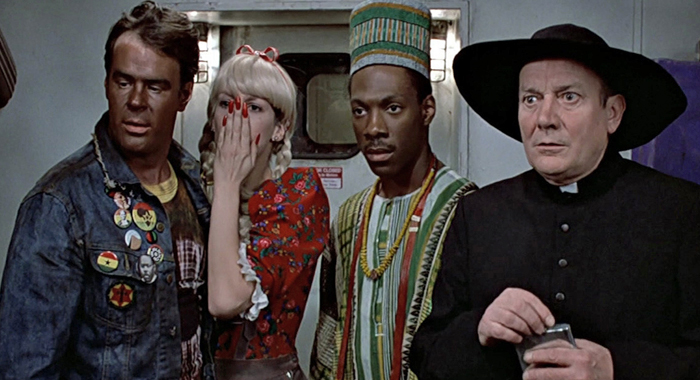
Think you’ve had some wild New Year’s nights? You’re a minor leaguer compared to Clarence Beeks (Paul Gleason), the shady associate of Randolph and Mortimer Duke (Ralph Bellamy and Don Ameche, respectively) who just wants to sell a stolen orange crop report — but ends up being assaulted, dressed in a gorilla costume while unconscious, locked in a cage with an actual gorilla, and shipped off to Africa. Moral of the story? Don’t mess with Billy Ray Valentine (Eddie Murphy) and Louis Winthorpe III (Dan Aykroyd) and never underestimate a hooker named Ophelia (Jamie Lee Curtis). Oh, and another thing: Trading Places is, in the words of David Nusair of Reel Film Reviews, “one of the most impressive comedies to emerge out of the 1980s.”
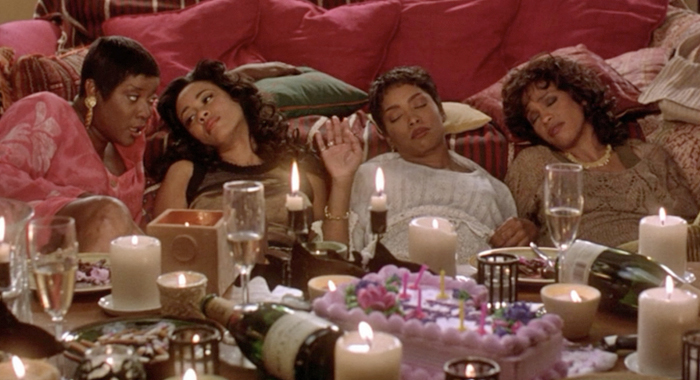
For some of us, New Year’s Eve is little more than an excuse to have a party; for others, it’s a time of reflection and reassessment — a line, however arbitrary, between the old and the new. It’s fitting, then, that 1995’s Waiting to Exhale (adapted from the Terry McMillan novel) uses a pair of New Year’s Eves as bookends for a turbulent year in the love lives of its four main characters. As the movie begins, Savannah (Whitney Houston), Bernadine (Angela Bassett), Robin (Lela Rochon), and Gloria (Loretta Devine) are each at a crossroads — and though we can’t tell you how things turn out for each of them without spoiling the movie (and taking up too much space in the bargain), we can tell you the journey was an enjoyable one for critics like Desson Thomson of the Washington Post, who wrote, “This sister-celebratory adaptation of Terry McMillan’s best-selling book is frequently delightful.”
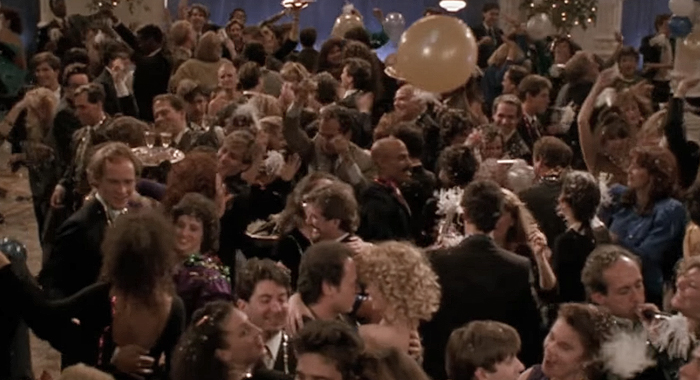
It’s the infamous deli scene that gets all the attention, but New Year’s Eve actually figures quite prominently in When Harry Met Sally. Not only is it at a New Year’s party that Harry (Billy Crystal) and Sally (Meg Ryan) realize their long-sublimated attraction for one another, but the film itself climaxes (ahem) at another New Year’s shindig, where the two star-crossed lovers finally come to terms with their relationship once and for all. Plus, When Harry Met Sally is the only film on our list to feature a comedic riff on the New Year’s anthem “Auld Lang Syne.” As Harry puts it, “I mean, ‘Should old acquaintance be forgot’? Does that mean that we should forget old acquaintances, or does it mean if we happened to forget them, we should remember them, which is not possible because we already forgot?” A career high point for director Rob Reiner and screenwriter Nora Ephron, it is, as Rolling Stone’s Peter Travers wrote, “A ravishing, romantic lark brimming over with style, intelligence and flashing wit.”